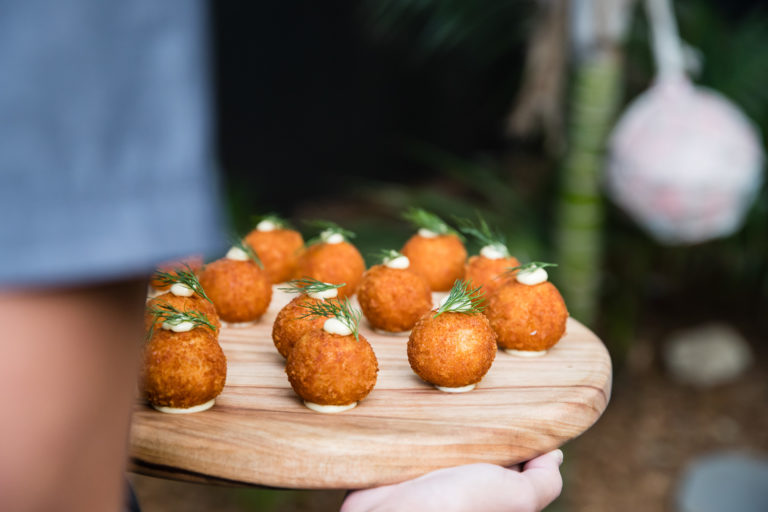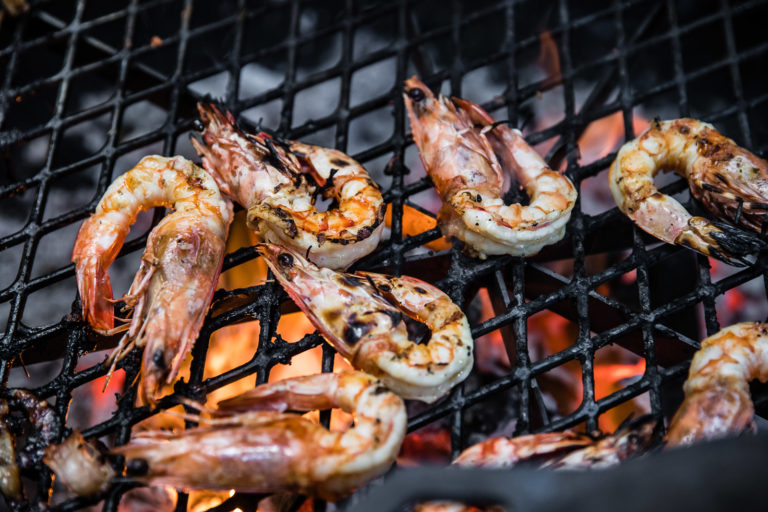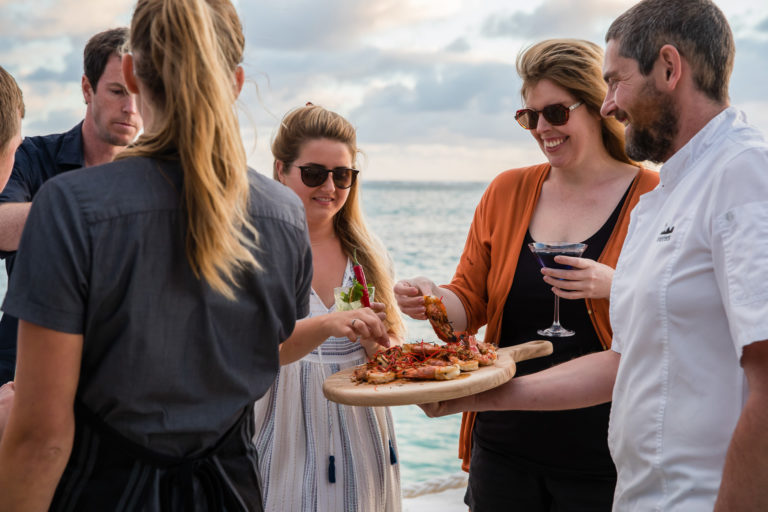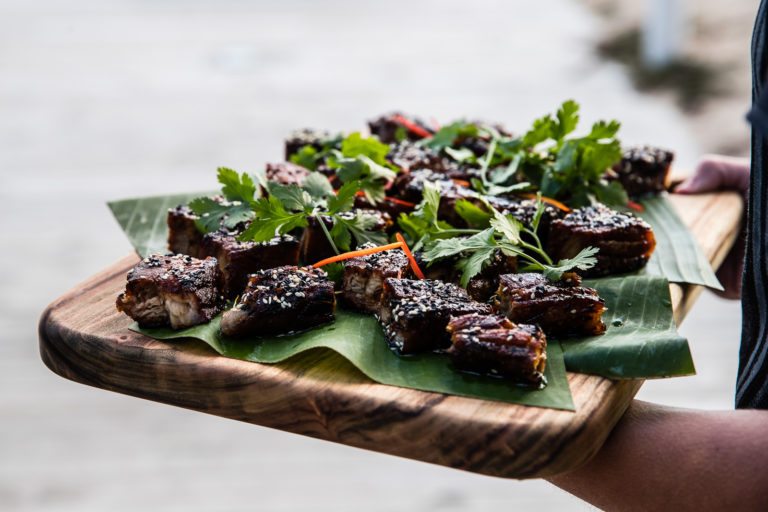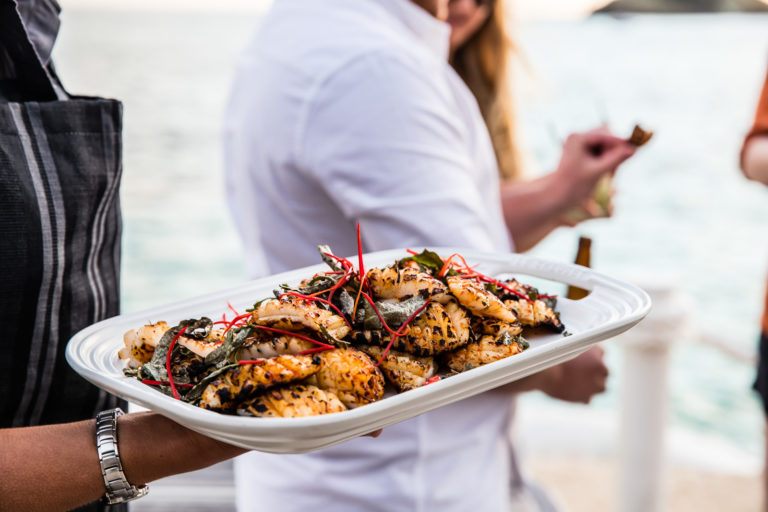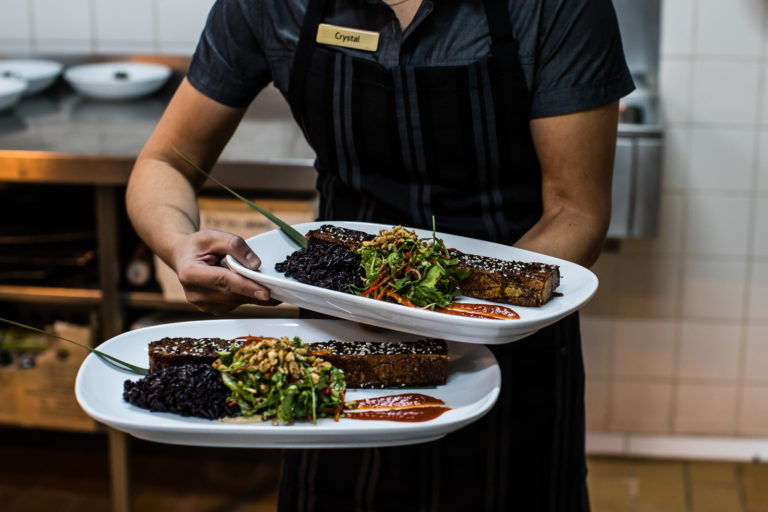With Pixie’s death in 2010, Pinetrees passed from the fifth to the sixth generation – us (Dani and Luke). Yes, we were foodies, and we loved watching Rick Stein DVDs and reading cookbooks from cover to cover, but do you think we’d ever spent time in a commercial kitchen? Not even close. Like most of our generation, we’d travelled and lived in different parts of the world, and we’d eaten loads of authentic food from different cultures, so we knew what we liked.
We also knew that Pinetrees had to evolve to keep the younger guests engaged with the place and attract new guests. It was a fine line. Change too much and we’d lose our regulars. Change too little and we’d have limited appeal to new guests and potential regulars. Eventually we decided to take our regular guests with us. It would be a food adventure for everyone. And you know what? They all came along. Only once has someone said that the food was better in the old days.
To this day, the best restaurant meal we’ve ever had was at Christine Manfield’s Universal in Sydney – just after it opened and before she received Two Hats. Each of the six courses was from a different part of the world, each was absolutely authentic in style and flavour, but each was made with the very best local ingredients. It was like street food on steroids. And that was us. From that day on we devoured regional cuisine cookbooks, DVDs and cooked (or at least tried) authentic recipes from David Thompson’s Thai Food, Christine Manfield’s Spice and Neil Perry’s Balance and Harmony.
The one chef who lives with us most days, but whom we never met, was Anthony Bourdain. We don’t talk about his food – we never tasted it – and we never ate at Les Halles in New York. But his blend of Rick Stein and Hunter S. Thompson made perfect sense to us – intelligent, sympathetic, insightful, provocative and rude – a perfect combination to challenge the way you think about food, and inspire you to try new things. We learnt more about regional cuisine from Anthony Bourdain than we can say. The world is a lesser place without him.
At Pinetrees, we hired chefs who could cook with spice and balance big flavours, and decided that our niche in the food world would be aromatic and authentic food, with an emphasis on quality. Easier said than done, but that was the plan. Like most people, we’d had enough of Mod Oz fusion, and decided that tandoori-chicken pizzas weren’t for us (or our guests). We’d tinkered with molecular and deconstructed food, but that was too fussy for our style of service, and didn’t really fit (although occasionally there’s some sodium alginate in the kitchen and Dennis can’t cook without his tweezers). Instead, we built a repertoire of relatively simple dishes that came from somewhere. It didn’t matter where – so long as the dish’s origin could be marked on a map, we were happy.
Along the way, we made friends with chefs who cook this style of food – guys like Peter Kuruvita, and Steven Snow – and they’ve guided us through the potential pitfalls. Our closest mentor, Tom Kime, has taught our guests, worked with our chefs and reminded us often over the last six years to be proud of the food that we serve. If you don’t own any of Tom’s six cookbooks, you should, because they are excellent.








